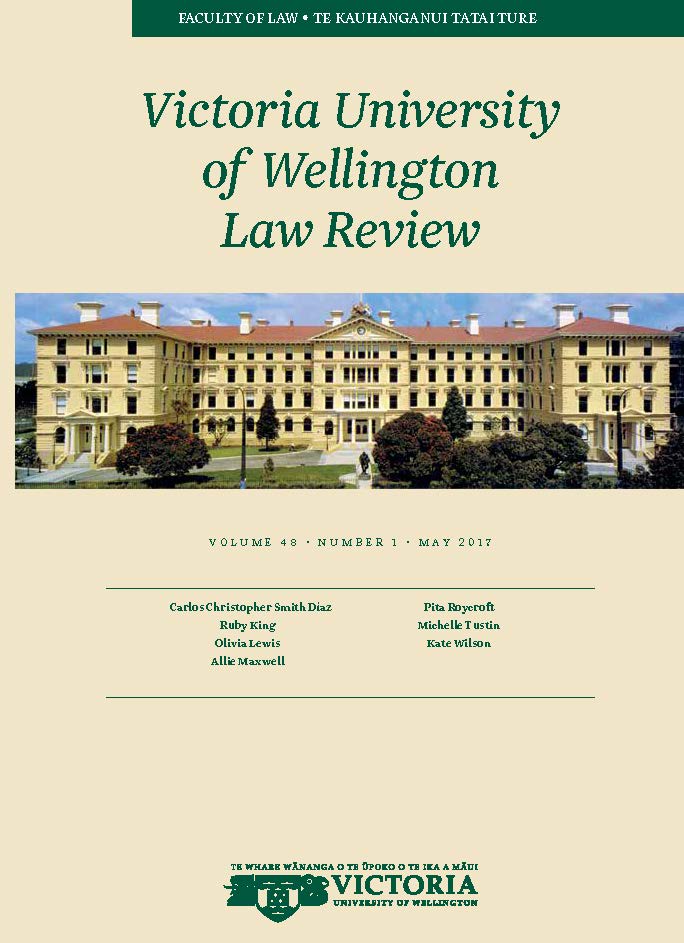Starbucks (HK) Case Note: The Ambiguous Limb of Goodwill and the Tort of
DOI:
https://doi.org/10.26686/vuwlr.v48i1.4769Abstract
This article looks at the United Kingdom Supreme Court's decision in the case of Starbucks (HK) Ltd v British Sky Broadcasting Group PLC (Starbucks). In this case Lord Neuberger reaffirmed that the traditional "hard-line approach" is the applicable test for the goodwill limb under the tort of passing off in the United Kingdom. This approach maintains that in order to succeed in a claim for passing off, the claimant must show that they have goodwill in the form of business and customers in the jurisdiction. A significant reputation among a sufficient section of the prospective purchasing public within the jurisdiction (the "soft-line approach") was held to be insufficient. This article critically analyses Lord Neuberger's reasoning in favour of the traditional hard-line approach. It is found that his approach was out of touch with modern commercial reality.
In conclusion, it is argued that Lord Neuberger did not strike the appropriate balance between the competing public interests in protection and competition, and it is contended that he should have adopted the more factually inquisitive soft-line approach. This would have brought the United Kingdom into line with what is arguably the more dominant and justifiable trend in other common law jurisdictions, thereby avoiding the enduring uncertainty which is likely to follow this decision.
Downloads
Downloads
Published
How to Cite
Issue
Section
License
Authors retain copyright in their work published in the Victoria University of Wellington Law Review.


